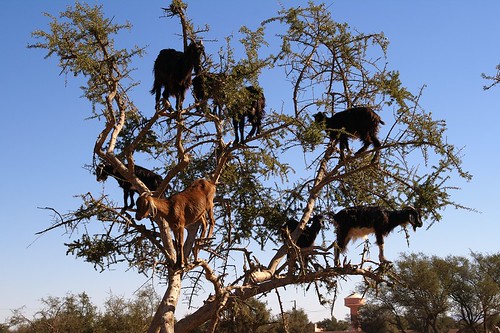Biodiesel Doesn't Grow On Trees, Does It ?
Posted by Big Gav in biodiesel, tree
Biodiesel magazine has a report on some research to extract biodiesel from "diesel" trees - Colorado researchers study biodiesel tree.
Chhandak Basu, a biological sciences assistant professor at the University of Northern Colorado, has received a $49,643 grant from the Colorado Office of Economic Development and International Trade to study the viability of using biodiesel derived from a tropical tree. The university will match the funds, bringing the total amount of grant money to nearly $100,000.
During a two-year collaborative project through the Bioscience Discovery Evaluation Grant Program, Basu is cloning the genes responsible for the production of oleoresin, a diesel-like fuel, produced in the copaiba or “diesel tree.” The genes will then be transferred into plants and algae to determine which plants are compatible and can produce the most biodiesel. Basu has been working on the project with University of Tennessee-Knoxville Professor C. Neal Stewart Jr., Ph.D.
According to Basu, oleoresin from genetically modified plants could potentially be mass-produced and used without further refining fuel automobiles. “The agricultural/physiological aspects of oleoresin have been studied extensively, but not the molecular biology part, not the genes responsible for this type of synthesis,” Basu said.
The diesel tree itself does not grow well outside of tropical environments, making it unlikely the trees could ever become a reliable source of large-scale biodiesel production. Standing at roughly 40 feet tall, it would take more than ten years of growth for the tree to produce a significant amount of fuel. Even then, a single tree would likely produce approximately 4 or 5 gallons of oleoresin every 6 months. The oleoresin is tapped from the trees in a way that is similar to collecting sap to make maple syrup. One benefit of the substance is that, unlike oil from traditional biodiesel feedstocks such as soybeans, oleoresin doesn’t have to be refined or manufactured before it’s used.
Basu and two graduate research students will transform Arabidopsis, a small non-invasive flowering plant, and algae with oleoresin genes. Genetic material for use in the study was collected from the copaiba tree by Basu during a trip to the University of Puerto Rico, San Juan.
Basu said Arabidopsis was chosen in part because if successfully modified it would not negatively affect food supplies or strain the economy. The plant is generally referred to as a weed and considered useless.






